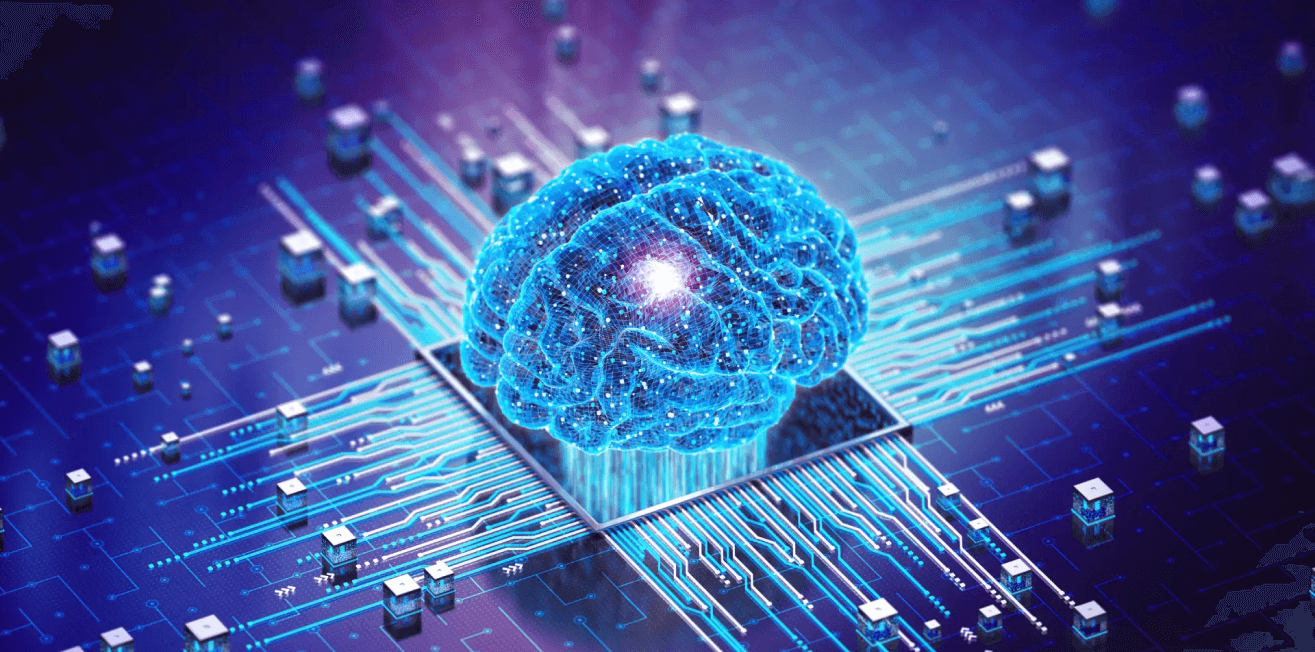- support@clics.cloudlogically.com
- +1 (832) 219-7518
The Synergy of Artificial Intelligence and Machine Learning in Cloud Computing
In the modern digital landscape, two technological powerhouses stand out: Artificial Intelligence (AI) and Cloud Computing. Both have revolutionized industries individually, but it’s their convergence that’s truly reshaping the technological landscape. In this blog post, we’ll delve into the symbiotic relationship between AI, Machine Learning (ML), and Cloud Computing, exploring how they enhance each other’s capabilities and drive innovation.

Enhancing Scalability and Flexibility:
Cloud Computing offers unparalleled scalability and flexibility, allowing businesses to scale their operations up or down based on demand. AI and ML algorithms can leverage this flexibility to optimize resource allocation dynamically. For instance, predictive analytics powered by AI can anticipate spikes in resource usage and automatically scale up computing resources to meet demand, ensuring optimal performance and cost-efficiency.
Democratizing AI:
Traditionally, implementing AI and ML solutions required significant computational power and expertise, making it accessible only to large enterprises with substantial resources. However, with Cloud Computing, AI capabilities are becoming increasingly democratized. Cloud service providers offer AI and ML services as part of their platform, enabling businesses of all sizes to leverage advanced algorithms without investing in expensive infrastructure or hiring specialized talent.
Accelerating Innovation:
The synergy between AI, ML, and Cloud Computing accelerates innovation by providing access to cutting-edge technologies and resources. Cloud-based AI platforms offer pre-trained models, development tools, and APIs that streamline the development and deployment of AI applications. This accessibility fosters a culture of experimentation and innovation, empowering businesses to explore new use cases and unlock novel insights from their data.
Driving Personalization and Customer Experience:
AI-powered personalization is revolutionizing customer experience across various industries. By analyzing vast amounts of data stored in the cloud, AI algorithms can generate personalized recommendations, tailored content, and targeted marketing campaigns. Cloud-based AI services enable businesses to deploy these capabilities rapidly, improving customer engagement and loyalty.
Enhancing Security and Compliance:
Security is a paramount concern in Cloud Computing, and AI plays a crucial role in fortifying defenses against evolving cyber threats. ML algorithms can analyze patterns in user behavior and network traffic to detect anomalies indicative of malicious activity. Additionally, AI-powered encryption and authentication mechanisms bolster data security in the cloud, ensuring compliance with regulatory standards and industry best practices.
Optimizing Operations and Cost Efficiency:
AI-driven automation optimizes operations in the cloud by streamlining repetitive tasks, minimizing downtime, and improving resource utilization. ML algorithms analyze historical data to identify inefficiencies and recommend optimizations, such as rightsizing instances or optimizing storage configurations. These insights enable businesses to reduce operational costs while maximizing the value of their cloud investments.
Enabling Edge Computing and IoT:
The proliferation of Internet of Things (IoT) devices and the need for real-time data processing have fueled the adoption of Edge Computing. AI algorithms deployed at the edge leverage Cloud Computing resources for training and inference, enabling intelligent decision-making closer to the data source. This distributed architecture reduces latency, conserves bandwidth, and enhances the scalability of IoT applications.
Facilitating Collaboration and Knowledge Sharing:
Cloud-based AI platforms serve as collaborative environments where researchers, developers, and data scientists can share resources, collaborate on projects, and access state-of-the-art tools and models. This democratization of knowledge accelerates innovation by fostering collaboration and knowledge sharing within the global AI community.

Conclusion
The integration of AI, ML, and Cloud Computing is driving transformative change across industries, empowering businesses to innovate, optimize operations, and deliver superior customer experiences. As these technologies continue to evolve and converge, the possibilities for leveraging their combined capabilities are limitless. By embracing this synergy, organizations can stay ahead of the curve and unlock new opportunities for growth and differentiation in the digital age.